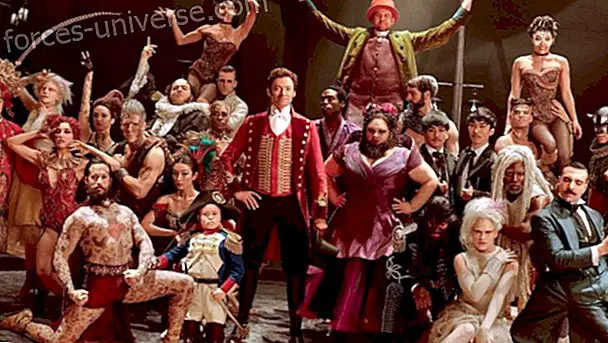
The objective of the international project tgl (acronym for teaching, giving, learning; in Spanish: teaching, giving, learning), that these days are taking their first steps in Spain, is to contribute to the positive transformation of society through acting on three important axes: the local economy, education and the media.
These three axes articulate most of the activities that can be developed within our virtual town environment, which does nothing more than reflect the activities that take place in a real environment, in any town or neighborhood where a tgl community has been launched. Next, we will explain the operation of each of these three pillars of tgl for social change.
Local economy
tgl has its own citizen bank, the L-Bank, which issues the L, its social currency. Its equivalence is one euro equal to one L, but you cannot exchange euros for Ls, nor the other way around. Unlike conventional money, which is created by banks in the form of debt (loans) that must be repaid, the Ls should not be returned to the L-Bank. It is a debt free and interest free money, whose objective is to stimulate teaching, learning, volunteering and social entrepreneurship.
In fact, L is the first complementary currency in the world that is only created when people teach or learn skills and knowledge, when they participate in volunteer projects equally useful for the community or when social entrepreneurship initiatives that generate employment are launched and local wealth. All these activities are stimulated with Ls, which receive both teachers and students who participate in courses organized through the tools of tgl. Ls also receive social entrepreneurs and those who volunteer.
On the other hand, the Ls are accepted by the merchants, freelancers and micro businesses that decide to offer their products and services through the “Commercial District” of tgl. Since large multinationals cannot participate in tgl, those who want to use their Ls to buy products and services, saving some euros, will have to do so in these small local businesses. The consequence is that all the money that circulates in the community, both the Ls and the euros, remain within the local scope, preventing its possible escape to distant tax havens, as often happens when we consume products and services of large corporations. In this way, the local economy and the exchange of products and services within a town or neighborhood are stimulated.
Education
As already noted, one of the ways to create Ls is through teaching and learning. For tgl, teaching and learning are dynamic processes that go beyond the conventional educational system to extend throughout a person's life. This is because any time is good to increase our skills and knowledge.
This commitment to people's abilities and knowledge is one of the keys of tgl. We know that capitalism discards the knowledge of many people who do not count for this productive system, despite how much they can contribute to society, simply because these skills are not compatible with the sole purpose of that economic system: the maximum benefit in The shortest possible time. Faced with this wrong way of understanding things, tgl wants to make it easier for any individual to have the opportunity to turn their skills and knowledge into opportunities for personal fulfillment, while obtaining an economic return for it.
In addition to encouraging people to discover their innate talents, another of tgl's goals is to encourage the recovery of traditional, manual and artisanal skills. Many of these skills are being lost, which also means losing culture and wisdom. At the same time, we want to involve in this process of recovery of traditional knowledge those who have been in direct contact with this legacy. We talk about older people, who still have a lot to offer society, and tgl wants to serve as a tool for it.
And how is this whole process of stimulating the teaching and learning of old and new knowledge articulated through tgl? Let's look at a specific example. It has been extracted from the tgl blog: “a person with the ability to teach something (almost everyone can have this capacity or develop it) or an organization that already offers courses (eg any academy) decides to offer a course through tgl . Plan the course, the contents, the number of students and the total hours over a period of three months. Then follow the process marked in the Exchanger-Courses to request Ls from the L-Bank; Next, the Ls, which could be called “learning credits”, are created in your teacher account at the L-Bank. The teacher will use these Ls to pay the students of his course and also to pay Ls himself (for the moment, a standard amount of 5L per hour has been set for teachers and students).
The person or academy that teaches the course must decide whether to maintain the same price of the course that was already charged in euros or if it reduces the price in euros as an additional incentive for students.
Therefore, the initial steps in your neighborhood or town include explaining to people who already teach that they can become members of tgl and start paying their students in Ls; In this way, we started to create Ls and there are people in the area with Ls to spend. As an example, in Las Rozas (Madrid), the owner of a pizzeria that teaches people who want to learn to make bread on Mondays has already committed to start paying students Ls; it happens that, in parallel, it is possible that in the pizzeria they begin to accept Ls in partial payment of their pizzas ”.
Media
Unfortunately, the large media groups of the press, radio, television and internet are increasingly functioning as instruments at the service of the interests of the main economic and political powers. On the other hand, the interests of people who do not belong to these privileged levels occupy a secondary role, if not irrelevant. Against this background, tgl is committed to media that serve to train critical people, with their own criteria and with the ability to understand what is happening in their environment and not be manipulated. Only then will it be possible to build a truly free society.
The best way to work in this direction is to launch media that are as close as possible to the reality of people. People who in most cases live in specific community settings. Hence the commitment to community media, focused on the day-to-day life of people living in the neighborhood or in the town.
tgl is already contacting the movement of community reporters in the United Kingdom, who base their journalistic activity on the values set out above. In fact, the idea is to organize courses on community reporting in the different countries where tgl is launched. This can be an interesting way to launch new media. These media will mainly deal with two functions:
-Inform about the activities and projects carried out by people and entities members of a local node tgl.
-Inform the entire neighborhood / town about the existence of tgl.
But you don't have to be a community reporter to participate in this work. There is also space for those who simply want to have their blog, or post news, videos and documents in the "Resource Zone" of tgl. For example, in Liverpool, tgl is already working with a group of parents who are dedicated to sending videos about the matches of the local soccer league in which their own children play. It is not necessary to be a journalist for your voice to count in the tgl community.
CONTACT INFORMATION:
The objective of tgl Spain is to support the creation of local nodes that develop this project in neighborhoods and municipalities. To this end, its driving group is open to explain this initiative in greater depth, and even to organize meetings, with people interested in creating a TGL community in their environment. Those who want to know more about tgl should explore the website http://www.tgl.tv, register and create their partner profile. You can also write to the contact email and visit the blog. Other ways of contact are your Facebook and your Twitter.
tgl: Three Pillars for Social Change






